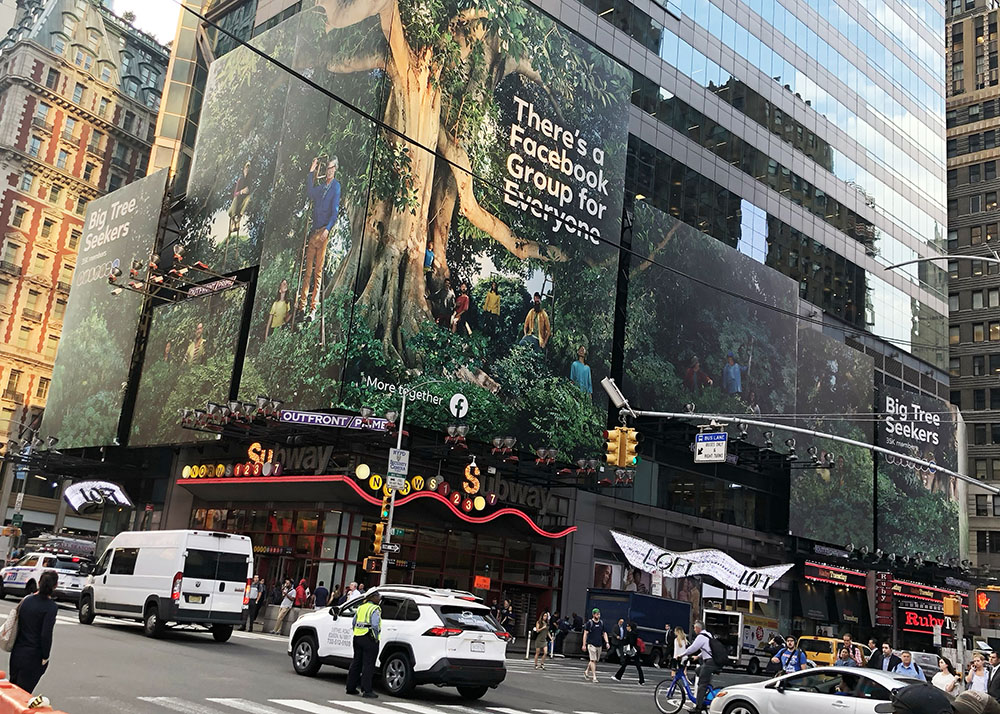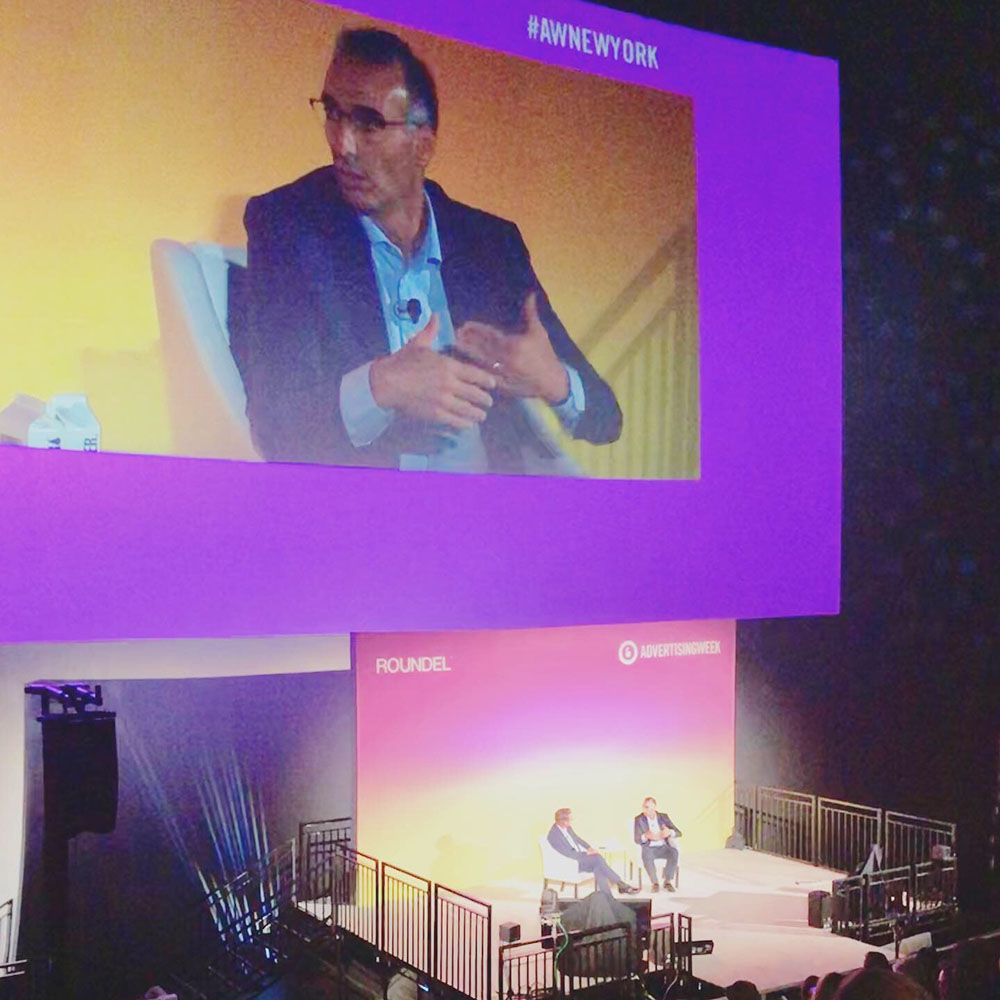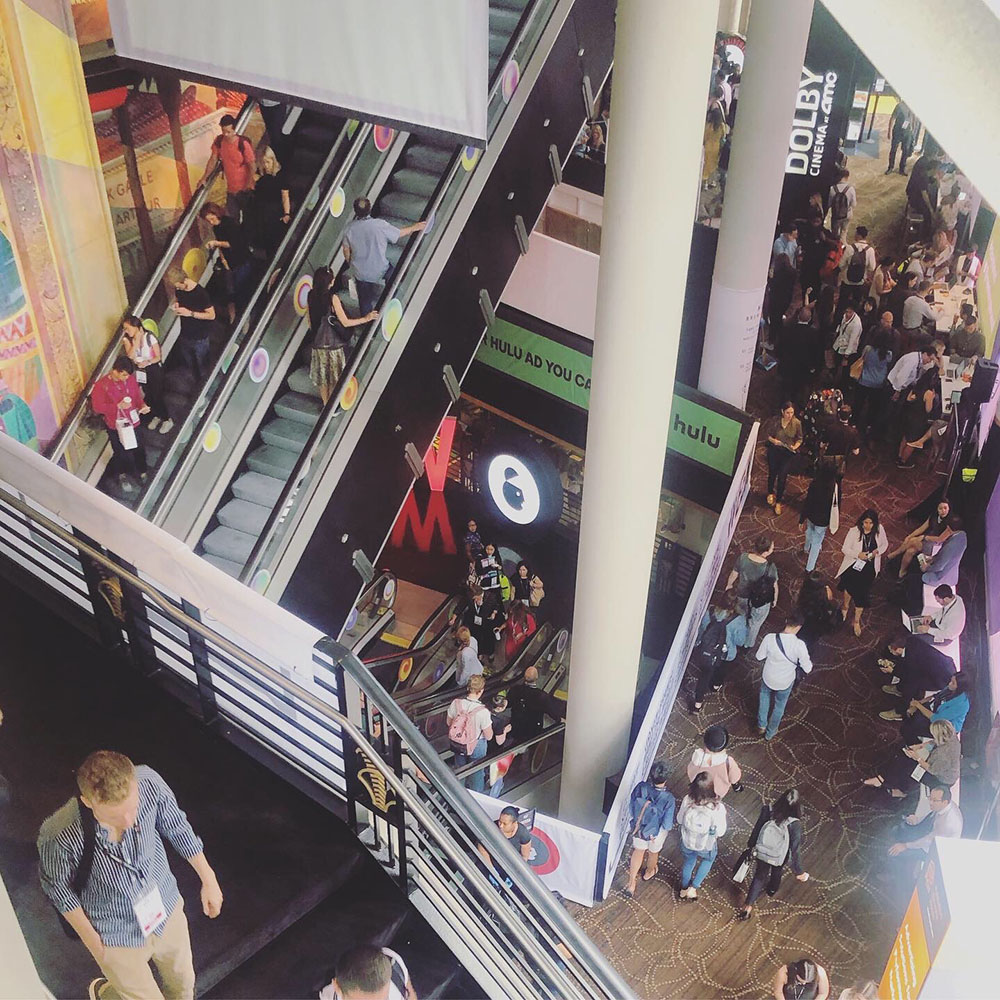Juicebox’s Joel Pember at Advertising Week NYC: Are the walls coming down?

Juicebox Brand Strategist Joel Pember was in New York recently for this year’s Advertising Week conference.
It’s a funny thing attending a conference whereby seemingly the biggest issue and topic of discussion are its platinum sponsors.
As the dominance of the ‘walled gardens’, specifically Google and Facebook, within the media and advertising landscape continues to grow – with half of all global advertising expected to be digital media by 2020, and 50% of all digital advertising spend captured by the two platforms – many heavyweight panelists and speakers at Advertising Week NYC were ready and motivated to raise concerns and start debating the potential pitfalls of continuing down this garden path.
The big issue raised by speakers at the conference was the fact that the walls of these platforms are seemingly getting higher as competition between the two platforms heats up while Amazon steadily chips away at the duopoly in US markets due to rise in ‘voice controlled’ marketing. And as the walls get higher, the lack of integration and transparency makes it harder for brands, publishers and marketers seeking to communicate with wide ranging audiences to dynamically coordinate content across multiple platforms.
One of the first major panels to kick-start this year’s conference was a discussion between two heavyweight executives: Luis Di Como, Global VP of Media at Unilever; and Allan Thygesen, President of Americas at Google.
Unilever directly raised concerns about the issue of media wastage due to duplicated reach and frequency when advertising on different platforms. Furthermore, as we move to 1-2-1 personalised marketing at scale, this duplication may be a potential risk to brand image and ultimately impact sales performance as marketers are unable to effectively integrate and manage the customer experience across platforms and channels.
Di Como explained that currently, Unilever has a set up a centralised people data centre, pulling customer data across their house of brands, before developing and deploying specific campaigns via media partners and platforms on a case-by-case basis.
The example that he provided was their global Ramadan campaigns. Unilever sought to target a multitude of customer segments with strategically placed food and drink advertisements that avoided the daylight fasting period, and were dynamically programmed to display pre-dawn and post-sunset according to specific time zones in cities around the world. He explained that this was already a challenging task for their team, however when you have the added complexity of deploying across multiple platforms due to varying adoption rates in various countries and without programmatic integration, the task becomes almost impossible.
It’s important to provide context about the significance of this panel discussion. Unilever is one of Google’s largest clients and they have been in partnership for some years, so it was interesting to see this conversation brought into the public domain. Clearly it was something that the two companies have been discussing prior to Advertising Week.
Another example of how this lack of integration might impact a smaller organisations are the restrictions of ‘Live Broadcast’ across multiple platforms. Most businesses have multiple customer segments across different platforms but there is currently no way to simulcast across Facebook and LinkedIn in real time.
In Google’s defence, the sentiment expressed by Allan Thygesen on stage was certainly not combative and he expressed a willingness to tackle the issue. Whether this plays out for all advertisers or becomes a bespoke solution for Google’s largest clients remains to be seen.
Perhaps the second biggest issue related to the ‘walled gardens’ was the potential disappearance of cookies from browsers due to GDPR regulation; after alleged clandestine data sharing by Google with unknown ad-exchanges; and the rise of new browsers like Brave, who have fuelled the discussion in their pursuit to be positioned as the anti-marketing browser delivering private, secure and fast browsing.
Plus Apple and Firefox have moved to limit the power of browser cookies to track online behaviour.
Should cookies ultimately be removed from browsers, the entire real time bidding systems that publishers use to fill online ad inventory would be disrupted. Cookie-matching and the syncing of ad-exchanges of consumer data would cease to exist and we would return to a more ‘contextual advertising’ reality, where websites and publishers (Newspapers etc) would develop proprietary advertising systems that allow advertisers to understand and engage with specific their audience.
The prediction amongst many panellists for 2020, is that the ad industry will return to behaviour experienced in 2014, when content advertising first started to emerge.
Furthermore, the reliance of the ‘walled gardens’ to be the primary provider of customer data is expected to evolve as brands and marketers invest and enrich their own customer databases. Much like Unilever’s people data centre, the future will see brands and businesses invest in more sophisticated CRM technologies to understand and fulfil their customers and shift the power dynamics away from the walled gardens.
I wonder whether the platinum partner sponsorship contracts were multi-year.


